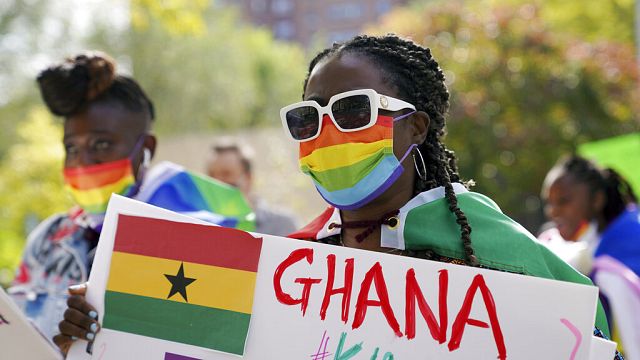The speaker of Ghana’s Parliament has halted the approval of new ministers over the delayed signing of an anti-LGBTQ+ bill by President Nana Akufo-Addo.
The bill, which seeks to criminalize gay relationships and support for them, was passed last month but has faced legal challenges.
The presidency has requested that Parliament refrain from sending the bill for presidential assent until these challenges are resolved.
Speaker Alban Bagbin has criticized the presidency’s stance as “contemptuous,” asserting that it undermines parliamentary authority.
President Akufo-Addo is facing pressure both domestically, where many Ghanaians support the bill, and internationally, with Western donors and human rights groups urging him not to sign it into law.
The delay in the bill’s signing has sparked a political showdown, with a lawyer challenging its passage in the Supreme Court on the grounds of insufficient parliamentary quorum during the vote.
In a recent letter to Parliament, the presidential secretary argued that it would be improper for the president to receive the bill until the court reaches a verdict on the matter.
In response, Speaker Bagbin has frozen the approval of new ministers, heightening pressure on the president to act.
The move has elicited mixed reactions among political leaders. While the minority leader in Parliament, Cassiel Ato Forson, supports the speaker’s stance, the majority leader, Alexander Afenyo-Markin, has criticized it, calling for wider consultation.
Former President John Mahama has weighed in, denouncing the presidency’s letter as unconstitutional and asserting that the presidential secretary lacks the authority to intervene in parliamentary matters.
Dubbed the “Proper Human Sexual Rights and Ghanaian Family Values” bill, the legislation has bipartisan support and enjoys backing from influential religious leaders. It proposes stringent penalties, including up to three years imprisonment for LGBTQ+ identification and five years for promoting LGBTQ+ activities.
President Akufo-Addo, who had previously indicated willingness to sign the bill if popularly supported, is now seeking to reassure the international community of Ghana’s commitment to human rights.
However, the bill’s potential ramifications extend beyond the social and political spheres. Ghana stands to lose significant World Bank funding amounting to $3.8 billion over the next five to six years if the bill is enacted.
This loss comes at a precarious time for the country, which is grappling with a severe economic crisis and recently received a bailout from the IMF.
With presidential and parliamentary elections scheduled for December, the resolution of this standoff remains uncertain, as the Supreme Court is unlikely to rule on the case before then.












